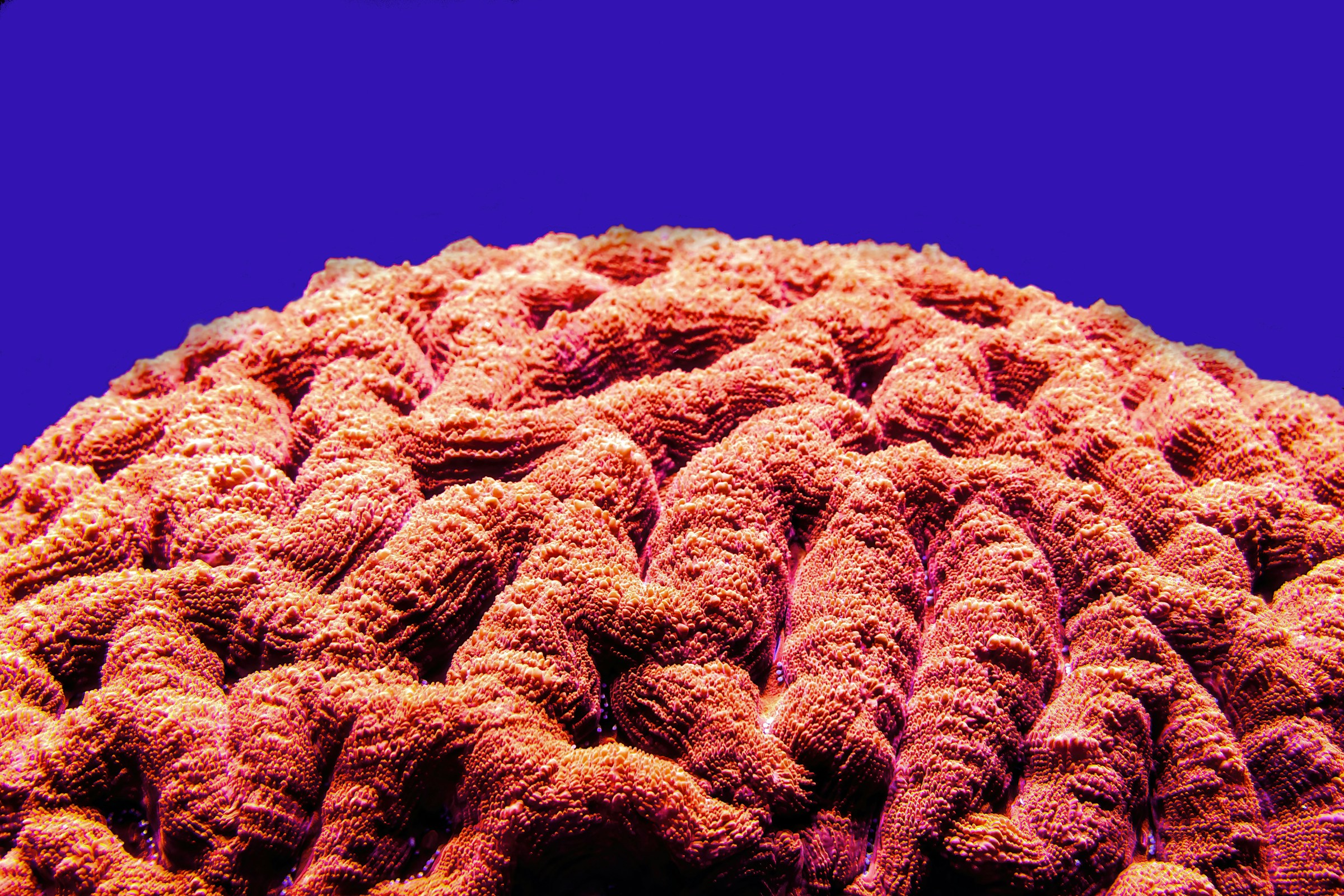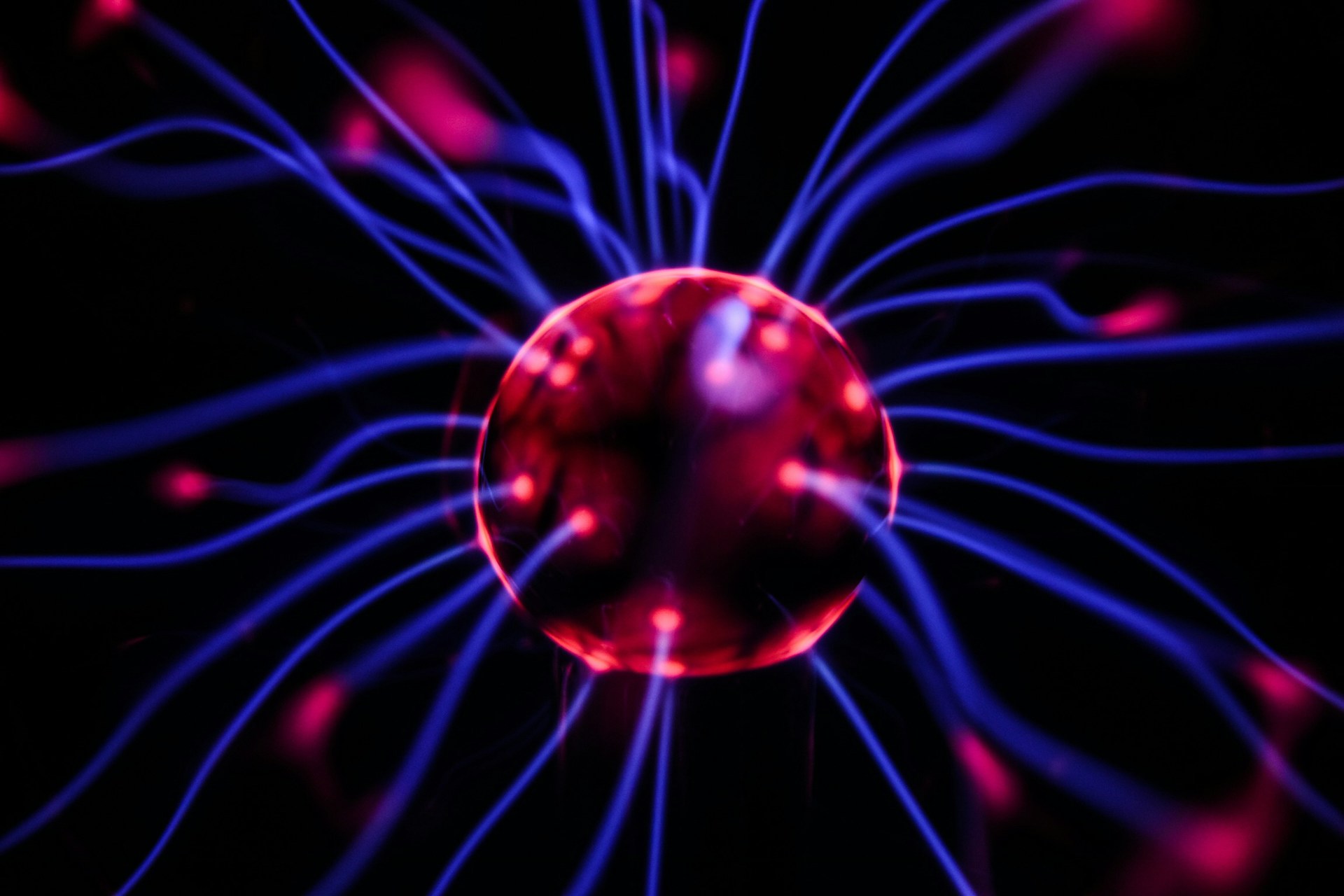Is Porn Bad for Mental Health
2024 M12 19

It's 11 PM on a Wednesday. You’re tired and want to sleep, but your mind won’t stop racing. You grab your phone for distraction and open an app. Instead of checking the news or scrolling through social media, you go to your porn addiction app. Instead of helping you sleep, your brain is racing again, and this time, it won’t let you sleep without a fight. Research shows that porn can lead to anxiety and insomnia, and you’re seeing it play out in real-time. If you’re wondering if porn is terrible for mental health, you’re not alone.
This guide will help you understand the connection between porn use and mental health. In particular, we’ll take a closer look at why porn can worsen anxiety, stress, and depression. If you’re struggling, we’ll also discuss helpful resources to help you quit porn and get back to a healthy mental state. QUITTR is one of the popular porn addiction apps to help you stop using porn by providing valuable tips, information, and community support to help you reach your goal.
Table of Contents
Steps to Address and Recover from the Mental Health Effects of Porn
Join Our 28-day Challenge & Quit Porn Forever with the #1 Science-based Way To Quit Porn
Does Porn Affect the Brain?

The High Price of Porn: The Connection Between Pornography, Dopamine, and Mental Health
Pornography consumption triggers a surge of dopamine, the neurotransmitter responsible for pleasure and reward. This overstimulation creates an artificial high, much more potent than natural stimuli such as exercise or social interaction. Over time, the brain becomes desensitized, requiring more explicit or varied content to achieve the same dopamine response.
This cycle mirrors addiction patterns and can disrupt the brain’s natural ability to find joy in everyday activities. For instance, someone who consumes porn frequently may find simple pleasures like spending time with loved ones less fulfilling. A study found that 66% of porn users watch it for 5 hours or less a month, but 6% consume more than 26 hours monthly, indicating a subset at higher risk for dependency.
Porn Is Rewiring Your Brain to Prefer Digital Over Real-Life Intimacy
The brain forms and strengthens neural pathways associated with frequent behaviors. Repeated exposure to porn reinforces pathways that associate sexual gratification with digital stimuli rather than real-life intimacy. This rewiring can decrease interest or satisfaction in physical relationships as the brain prioritizes artificial stimuli. It also creates difficulty in forming deep emotional or physical connections with partners.
For example, a person accustomed to porn may struggle to engage emotionally in a committed relationship, finding real-life intimacy less stimulating. Among individuals aged 18–26, 67% of men and 49% of women agree that viewing pornography is acceptable, reflecting normalization that can lead to habitual consumption.
Escaping to Porn: How Pornography Impacts Emotional Regulation
Porn can become a coping mechanism for stress, loneliness, or boredom, disrupting healthy emotional regulation. Individuals may turn to porn as an escape, reinforcing avoidance rather than confronting emotions or challenges. This emotional reliance can worsen anxiety, depression, or low self-esteem, creating a negative feedback loop.
It also inhibits the development of healthier stress management strategies. For instance, after a stressful day, someone may use porn to relax instead of engaging in productive coping mechanisms like exercise or mindfulness. A staggering 87% of men and 31% of women reported using pornography, highlighting its pervasive presence as a potential emotional crutch.
Tolerance, Escalation, and the Risk of Compulsive Behaviors
Just like substance addiction, frequent consumption leads to tolerance, where the brain demands increasingly explicit or extreme content for the same effect. This escalation can push individuals to consume content that conflicts with personal values or societal norms. It contributes to feelings of guilt, shame, and secrecy, deepening emotional and mental health struggles.
It also increases the risk of compulsive behavior, making it harder to stop even when negative consequences arise. For example, an individual starts with occasional viewing but progresses to daily consumption of niche or extreme content due to tolerance. While 66% of users watch less than 5 hours monthly, 3% watch over 50 hours per month, highlighting how escalation impacts a minority of users severely.
The Broad Reach of Pornography: Demographics and Social Implications
Among older adults, while sexual intercourse decreases, masturbation and pornography use increase. This reflects how porn becomes a substitute for physical intimacy. Pornography's widespread acceptance (as seen in 67% of men and 49% of women aged 18–26) perpetuates its integration into daily life, minimizing awareness of its risks.
Related Reading
• Porn Addiction Symptoms
• Porn Addiction Effects
• Why is Porn Addiction Bad
• Why Do I Feel Bad After Masturbating
• How Much Porn is Too Much
• Does Porn Ruin Relationships
How Porn Impacts Your Emotions

Porn as a Coping Mechanism
Many individuals turn to pornography to escape stress, loneliness, or emotional discomfort. The instant gratification provided by porn serves as a temporary distraction from real-life challenges. Using porn as a coping mechanism prevents individuals from developing healthier ways to manage stress and emotions.
Over time, this reliance can create emotional avoidance, where complicated feelings are suppressed rather than addressed. For example, someone experiencing relationship conflict may turn to porn instead of engaging in open communication, avoiding resolution of the issue.
Impact on Mood and Self-Esteem
Regular porn consumption can lead to guilt, shame, or feelings of inadequacy, particularly when it conflicts with personal values or societal expectations. Comparisons to unrealistic portrayals in porn can harm self-esteem and create feelings of inadequacy in relationships or personal image. These negative emotions can contribute to a cycle of low self-worth, where individuals use porn to numb their insecurities, reinforcing the emotional dependency.
A Reddit user shared: "I realized I was using porn to avoid feeling lonely. It only made me feel worse about myself in the long run." A 2022 study published in the Journal of Behavioral Addictions found that frequent porn users reported higher rates of anxiety and depression, often tied to feelings of guilt and isolation.
Emotional Dysregulation and Escalation
Emotional dysregulation occurs when individuals lose the ability to manage their emotional responses effectively. Escalation in porn use is common, where individuals consume increasingly extreme or niche content to achieve the same level of emotional relief or excitement.
This escalation further entrenches emotional dependency, making it harder for individuals to regulate emotions without external stimuli like porn. It creates a feedback loop where emotional challenges intensify, leading to greater reliance on porn as a coping tool. For example, after a stressful workday, someone might initially watch porn for a sense of relief, but over time, they find themselves needing more explicit content to achieve the same emotional release.
The Role of Shame and Secrecy
Many individuals hide their porn consumption from others, leading to feelings of shame and secrecy. This secrecy creates a barrier to seeking help or openly addressing the emotional struggles tied to porn use. The internal conflict caused by shame can worsen emotional health, increasing feelings of isolation and self-criticism. It can also erode trust and relationship communication, further compounding emotional challenges. A 2021 survey by Statista found that 44% of individuals felt shame about their porn consumption, with many citing its negative impact on their mental health and relationships.
Long-Term Emotional Consequences
Prolonged porn use can erode emotional resilience, making it harder to face and process complicated feelings. This may lead to chronic stress, mood swings, or emotional detachment from loved ones. Over time, emotional detachment can harm personal relationships, career progress, and well-being. For example, someone struggling with porn dependency may become increasingly irritable or withdrawn, straining connections with family or friends.
QUITTR: An Inside Look at the #1 Science-Based App to Quit Porn
QUITTR is a science-based and actionable way to quit porn forever. Our app combines practical tools with supportive features like an AI-powered support system and community leaderboards, meditation exercises, and progress tracking. We've included essential features like a content blocker, streak tracker, AI Therapist, recovery journal, leaderboard, meditation games, lessons, education, relaxing sounds, side-effect awareness, life tree features, and more!
Whether you're seeking support, education, or practical tools to quit porn forever, QUITTR offers a private, understanding space to work toward your personal goals. Try the #1 science-based way to stop porn by joining our 28-day challenge to compete with other people for the longest streak.
Related Reading
• Does Porn Cause Depression
• Masturbation Withdrawal
• Does Porn Cause Anxiety
• Porn Relapse
• What Happens When You Stop Masturbating
• Why is Porn So Hard to Quit
• How Many People Are Addicted to Porn
• Porn Withdrawal Symptoms
• How to Stop Porn Addiction
• How to Stop Watching Porn
How Does Porn Affect Your Mental Health?

Anxiety and Depression: The Emotional Toll of Pornography
Frequent porn consumption can lead to heightened feelings of guilt, shame, and self-criticism, especially when usage conflicts with personal values. These emotions can contribute to or exacerbate existing anxiety and depression. Persistent guilt and negative self-talk can spiral into chronic mental health conditions. Individuals may struggle to feel fulfilled in other areas of life due to the emotional weight of these feelings.
For instance, a person who feels they cannot control their porn habits may experience reduced self-worth, leading to feelings of hopelessness or inadequacy. A 2021 survey published in Psychological Medicine found a correlation between high-frequency porn use and symptoms of depression, particularly among younger adults.
Impaired Cognitive Function: How Pornood Reduces Focus and Memory
The brain’s reward system becomes overstimulated with frequent porn consumption, leading to difficulty concentrating on tasks that do not provide immediate gratification. Over time, this can reduce productivity and make it harder to complete routine tasks. This cognitive impairment can spill into professional or academic settings, where focus and sustained attention are crucial. It can also interfere with forming long-term goals or managing responsibilities effectively. For example, an individual may find themselves distracted during work or studies, with intrusive thoughts about consuming porn disrupting their focus.
Impact on Self-Esteem and Body Image: How Porn Creates Unrealistic Expectations
Porn often portrays unrealistic physical standards and scenarios, leading individuals to compare themselves or their partners unfavorably. These comparisons can erode self-esteem and create feelings of inadequacy. Poor self-esteem can lead to social withdrawal, reduced confidence, and difficulties forming meaningful relationships. Due to perceived shortcomings, individuals may feel less satisfied with their appearance or abilities. For instance, a partner in a relationship may feel they cannot meet the exaggerated standards set by pornography, leading to feelings of insecurity.
Dependency and Compulsive Behavior: The Cycle of Porn Addiction
For some, porn use evolves into compulsive behavior, where consumption becomes challenging to control despite adverse consequences. This dependency often stems from underlying psychological issues, such as stress, loneliness, or trauma. Compulsive behavior reinforces feelings of powerlessness and can exacerbate mental health struggles. It also leads to a cycle of secrecy, shame, and isolation, further deepening emotional distress. For example, someone who recognizes their overuse may feel trapped in a pattern of behavior they can’t break, leading to increased frustration and self-criticism.
Reduced Satisfaction in Real-Life Relationships: Why Porn Can Ruin Your Sex Life
Frequent porn consumption can lead to reduced interest or satisfaction in real-life relationships. The brain becomes conditioned to seek gratification from artificial sources, making it harder to connect emotionally and physically with a partner. This disconnection can strain relationships, increase loneliness, and contribute to feelings of isolation. For instance, a person may find it challenging to engage intimately with their partner, feeling disconnected or uninterested due to their reliance on porn.
QUITTR: An Inside Look at the #1 Science-Based App to Quit Porn
QUITTR is a science-based and actionable way to quit porn forever. Our app combines practical tools with supportive features like an AI-powered support system and community leaderboards, meditation exercises, and progress tracking. We've included essential features like a content blocker, streak tracker, AI Therapist, recovery journal, leaderboard, meditation games, lessons, education, relaxing sounds, side-effect awareness, life tree features, and more!
Whether you're seeking support, education, or practical tools to quit porn forever, QUITTR offers a private, understanding space to work toward your personal goals. Try the #1 science-based way to stop porn by joining our 28-day challenge to compete with other people for the longest streak.
Steps to Address and Recover from the Mental Health Effects of Porn

Recognizing the Impact of Pornography on Mental Health
The first step to recovery is recognizing how porn consumption has negatively impacted your mental health. Acknowledgment allows individuals to take accountability and begin seeking solutions. Many people downplay or deny the effects of porn, which prevents them from addressing the root cause of their mental health struggles. Owning the problem is an empowering step toward making meaningful changes. For instance, a person feeling emotionally distant from their partner might realize their reliance on porn is contributing to the disconnect, motivating them to seek change.
Use Tools like QUITTR to Aid Recovery
Digital tools like QUITTR provide structured, science-based support to ease the transition away from porn use. These tools also foster accountability and build confidence through measurable progress. For example, a QUITTR user can set daily recovery goals, track streaks, and consult the AI therapist for personalized advice during doubt or relapse. Features to leverage include an AI-powered therapist, which offers personalized guidance to help users navigate emotional and mental hurdles.
Streak Tracker
Encourages users to stay committed to their goals by visualizing their progress. Recovery Journal: Helps individuals reflect on their journey, identify triggers, and celebrate milestones.
Engage in Therapy or Counseling
Professional therapy, particularly Cognitive Behavioral Therapy (CBT), addresses the underlying triggers of porn dependency, such as stress, anxiety, or past trauma. Support groups provide a sense of community, reducing feelings of isolation and offering shared experiences as a source of motivation.
Therapy focuses on building healthier coping mechanisms, addressing the root causes of compulsive behaviors, and fostering emotional resilience. Support groups provide accountability and an opportunity to learn from others' recovery journeys. Joining a support group like NoFap can create a safe space to discuss struggles and celebrate victories with others who share similar goals.
Build Healthy Habits to Replace Pornography
Developing healthy habits fills the void left by porn consumption, redirecting energy toward activities that enhance well-being. Meditation, exercise, and creative hobbies can help reduce stress and improve mental health.
Steps to Start
Replace the time spent on porn with activities like journaling, yoga, or learning a new skill. Use the QUITTR app to log your progress in adopting healthier alternatives. For example, a person who used to watch porn after work starts attending a fitness class or journaling about their day instead, reducing their reliance on unhealthy coping mechanisms.
Join Our 28-day Challenge & Quit Porn Forever with the #1 Science-based Way To Quit Porn

QUITTR is a science-based and actionable way to quit porn forever. Our app combines practical tools with supportive features like an AI-powered support system and community leaderboards, meditation exercises, and progress tracking. We've included essential features like a content blocker, streak tracker, AI Therapist, recovery journal, leaderboard, meditation games, lessons, education, relaxing sounds, side-effect awareness, life tree features, and more!
Whether you're seeking support, education, or practical tools to quit porn forever, QUITTR offers a private, understanding space to work toward your personal goals. Try the #1 science-based way to stop porn by joining our 28-day challenge to compete with other people for the longest streak.
Related Reading

Ready to finally quit?
Start your journey today and start becoming the best version of yourself. The benefits feel great, trust us - The QUITTR Team